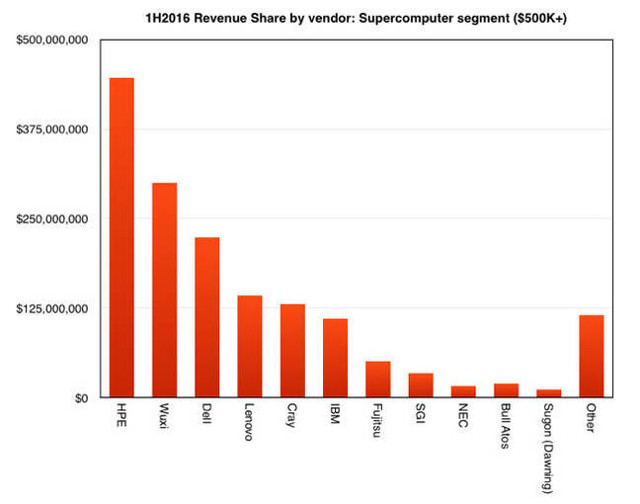
The DOJ said it would not block AT&T’s $85B acquisition of Time Warner on Thursday, within hours the acquisition was deemed complete. AT&T wasn’t the only company making moves… Workday bought TWO companies and data analytics companies Slack and Tableau both announced acquisitions this week.
Amazon was in the press for poor labor conditions in their Alexa supply chain. Foxconn workers making the devices have been found to be mistreated and underpaid. Amazon’s own audit of the situation confirms the report.
Oracle shares dropped due to a JP Morgan CIO report documenting a decrease of purchasing interest of Oracle products and services from IT executives.
Acquisitions
- AT&T Completes Acquisition of Time Warner Inc.
Under the terms of the merger, Time Warner Inc. shareholders received 1.4 shares of AT&T common stock, in addition to $53.75 in cash, per share of Time Warner Inc. As a result, AT&T issued 1,185M shares of common stock and paid $42.5B in cash. Including net debt from Time Warner, we now have $180.4B in net debt.
https://www.businesswire.com/news/home/20180614006343/en/ATT-Completes-Acquisition-Time-Warner
- Workday acquires Rallyteam to fuel machine learning efforts
In this case, Workday appears to be acquiring the talent. It wants to take the Rallyteam team and incorporate it into the company’s engineering unit to beef up its machine learning efforts, while taking advantage of the expertise it has built up over the years connecting employees with interesting internal projects.
“With Rallyteam, we gain incredible team members who created a talent mobility platform that uses machine learning to help companies better understand and optimize their workforces by matching a worker’s interests, skills and connections with relevant jobs, projects, tasks and people,” Workday’s Cristina Goldt wrote in a blog post announcing the acquisition.
https://techcrunch.com/2018/06/08/workday-acquires-rallyteam-to-fuel-machine-learning-efforts/
- Workday acquires financial modelling startup Adaptive Insights for $1.55B
Workday, the cloud-based platform that offers HR and other back-office apps for businesses, is making an acquisition to expand its portfolio of services: It’s buying Adaptive Insights, a provider of cloud-based business planning and financial modelling tools, for $1.55 billion. The acquisition is notable because Adaptive Insights had filed for an IPO as recently as May 17.
Workday says that the $1.55 billion price tag includes “the assumption of approximately $150 million in unvested equity issued to Adaptive Insights employees” related to that IPO. This deal is expected to close in Q3 of this year.
- Tableau gets AI shot in the arm with Empirical Systems acquisition
The startup was born just two years ago from research on automated statistics at the MIT Probabilistic Computing Project. According to the company website, “Empirical is an analytics engine that automatically models structured, tabular data (such as spreadsheets, tables, or csv files) and allows those models to be queried to uncover statistical insights in data.”
The product was still in private Beta when Tableau bought the company. It is delivered currently as an engine embedded inside other applications. That sounds like something that could slip in nicely into the Tableau analytics platform. What’s more, it will be bringing the engineering team on board for some AI knowledge, while taking advantage of this underlying advanced technology.
- Splunk to Acquire Software Problem-Solver VictorOps for $120 Million
Big data-cruncher Splunk is acquiring VictorOps, a Boulder, Colo.-based startup whose tools help software developers collaborate and resolve engineering issues, for $120 million mostly in cash with some stock equity. The deal is expected to close before August.
VictorOps’ tech brings together software engineers so they can overcome technical issues as they arise. The system generates notifications, pulls relevant parties into chat groups, presents pertinent documents, and keeps detailed records as teams work through coding problems.
http://fortune.com/2018/06/11/splunk-acquire-software-startup-victorops/
Artificial Intelligence
- Accenture wants to beat unfair AI with a professional toolkit
“We’re seeing increasing focus on algorithmic bias, fairness. Just this past week we’ve had Singapore announce an AI ethics board. Korea announce an AI ethics board. In the US we already have industry creating different groups — such as The Partnership on AI. Google just released their ethical guidelines… So I think industry leaders, as well as non-tech companies, are looking for guidance. They are looking for standards and protocols and something to adhere to because they want to know that they are safe in creating products.
“It’s not an easy task to think about these things. Not every organization or company has the resources to. So how might we better enable that to happen? Through good legislation, through enabling trust, communication. And also through developing these kinds of tools to help the process along.”
https://techcrunch.com/2018/06/09/accenture-wants-to-beat-unfair-ai-with-a-professional-toolkit/
Cloud
- Oracle shares drop after JP Morgan downgrades on lost business to Amazon and Microsoft
Oracle’s “specific metrics in our large-scale CIO survey have arced over into negative territory, which makes us uncomfortable because the results of our CIO surveys over the years have been highly predictive,” analyst Mark Murphy said in a note to clients Thursday. “Oracle spending intentions have only looked lukewarm in our CIO survey work in the recent past, but the data takes a dive in the current survey. … In our discussions, CIOs have clarified that they are migrating Oracle databases to Microsoft SQL Server, Amazon databases and PostgreSQL.”
Software/SaaS
- Microsoft will ‘lose developers for a generation’ if it stuffs up GitHub, says future CEO
“We are buying GitHub because we like GitHub; our plan is to continue to invest in the GitHub roadmap, and make GitHub better at being GitHub,” Friedman wrote.
That means no ads in public repos, because Friedman said Sourceforge became “a swamp of banner ads and pop ups and delayed downloads to expose users to more ads”. He added that “GitHub’s clean interface and developer-centric approach can be seen in part as a reaction against Sourceforge” and suggested GitHub’s ascendency shows a no-ads approach has proven the correct approach.
https://www.theregister.co.uk/2018/06/08/nat_friedman_github_ceo_elect_ama_session/
- Yahoo Messenger is shutting down on July 17, redirects users to group messaging app Squirrel
“There currently isn’t a replacement product available for Yahoo Messenger,” the company writes. “We’re constantly experimenting with new services and apps, one of which is an invite-only group messaging app called Yahoo Squirrel (currently in beta).” Squirrel is a group messaging app Yahoo started testing last month. You can request access to the beta here.
Datacenter/Hardware
- IBM and the DoE launch the world’s fastest supercomputer
Summit, which has been in the works for a few years now, features 4,608 compute servers with two 22-core IBM Power9 chips and six Nvidia Tesla V100 GPUs each. In total, the system also features over 10 petabytes of memory. Given the presence of the Nvidia GPUs, it’s no surprise that the system is meant to be used for machine learning and deep learning applications, as well as the usual high performance computing workloads for research in energy and advanced materials that you would expect to happen at Oak Ridge.
https://techcrunch.com/2018/06/08/ibms-new-summit-supercomputer-for-the-doe-delivers-200-petaflops/
- Qualcomm Is Cutting Up to Half of Jobs in Data-Center Unit
The company will eliminate 241 positions at its design center in Raleigh, North Carolina, and 43 in California, according to notices filed with those states. The total number of cuts, including those not covered by such notices, will represent a third to half of the server-chip unit’s employees, according to a person familiar with the process. The reduction comes on top of the previously announced elimination of about 1,500 workers across the company.
Other
- Verizon CEO to Retire, Succeeded by a Newcomer
Verizon Communications Inc. VZ 0.35% named Hans Vestberg as its next chief executive, choosing a relative newcomer to run the wireless giant at a time when its industry is being reshaped by megadeals.
Mr. Vestberg, who joined the company about a year ago and is its chief technology officer, will succeed longtime CEO Lowell McAdam on Aug. 1. Mr. McAdam will remain executive chairman until the end of the year and then become nonexecutive chairman.
- After report on ‘appalling’ conditions, Foxconn will investigate plant that makes Amazon devices
Though regular workers were better compensated in terms of wages and benefits, China Labor Watch says both groups were subjected to long hours and low wages, with workers putting in more than 100 overtime hours during peak season, even though the legal limit is 36 hours, and some working consecutively for 14 days. Workers on average earned wages between 2000 to 3000 RMB ($312.12 to $468.19), significantly less than Hengyang’s monthly average wage of 4,647 RMB ($725.22), but often had their overtime hours as punishment for taking leave or having unexcused absences.
The report also claimed that the factory had poor fire safety in its dormitories, lack of sufficiently protective equipment, verbally abusive managers and the “absence of a functioning labor union.”
https://techcrunch.com/2018/06/10/after-report-on-appalling-conditions-foxconn-will-investigate-plant-that-makes-amazon-devices/
Workers not paid legally by Amazon contractor in ChinaAmazon disclosed that its own auditors visited the Foxconn factory in March and found that it had hired an illegally high number of agency workers and was not paying them properly for working overtime.
Agency staff – known as dispatch workers in China – do not get sick pay or holiday pay and can be laid off without wages during lulls in production. China changed its labour laws in 2014 to limit their use to 10% of any workforce in an attempt to stop companies exploiting them to cut costs.
https://www.theguardian.com/technology/2018/jun/09/amazon-contractor-foxconn-pay-workers-illegally
Photo by Michael Prewett on Unsplash














